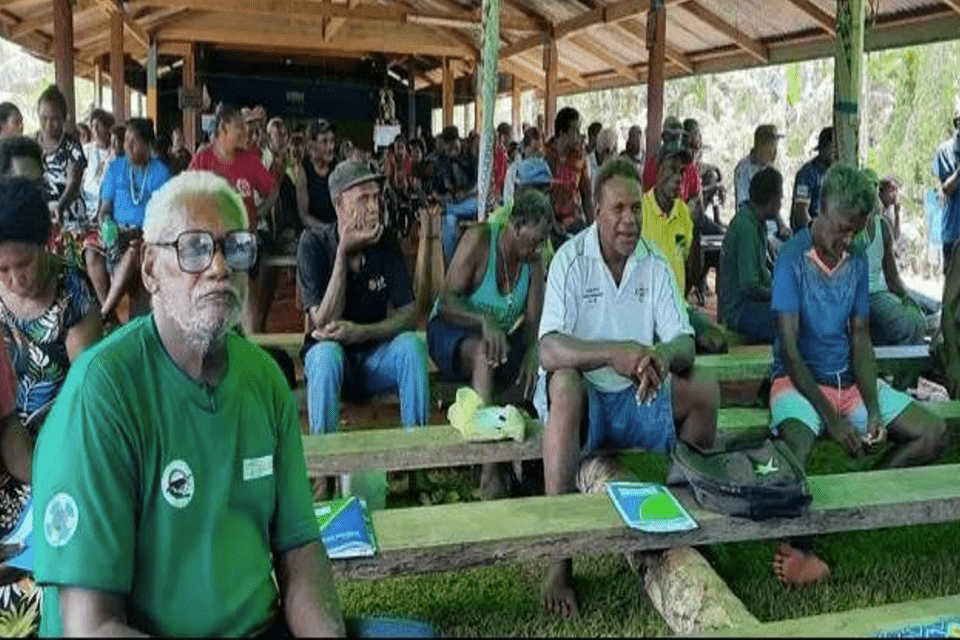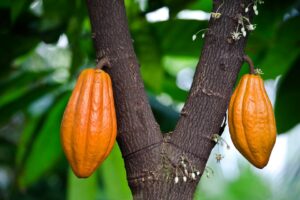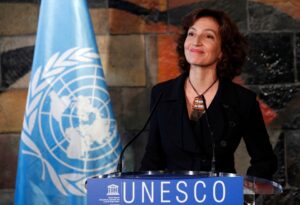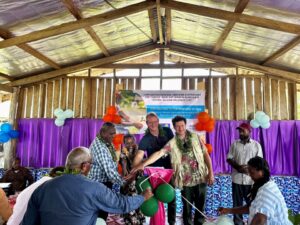BY JOHN HOUANIHAU
THIS years Are’are Arahana leadership forum held at the Hautahe village in East Are‘are, Malaita province served as a roadmap for community leaders and chiefs to understand and tackle the complex traditional land tenure system and natural resource management and conservation challenges.
Facilitating the 3-day forum from 14 to 16 February 2023 is the West Are’Are Rokotanikeni Association (WARA) with the funding support from SPC-PPAC.
The forum invited the active participation of the respective heads and members from the following ‘House of Chiefs’ like Arahanimane, Arahahu, Namoaraha, and Malamweimwei in East Are’are’ to discuss the important founding pillars of the Mai-Ma’asina Green Belt Initiative.
These are the following pillars:
- Reviving the traditional governance/knowledge of the land tenure system,
- Establishing more research-based studies of the land, people, and biodiversity
- Climate Crisis and Conservation benefits – which is to create economic incentive activities like eco-tourism, water bottling, honey production, carbon credit trading market, and others.
Mai-Ma’asina Green Belt Initiative, Vice Chairman Mr. Edward Huitarau told ENVIRONMENT MEDIA that the forum was made possible through the funding support of the SPC-HRSD Pacific People Advancing Change (PPAC) Small Grants.
Mr. Huitarau said that MGBI mainly focuses its conservation work on the three basic pillars, which is traditional governance and knowledge, research, and economic incentives for resource owners.
He said despite, the MMGB conservation effort in Are ‘are and Kwaio region having been going well, there are also Challenges faced due to the impacts and threats triggered by the effects of Climate Change.
“The impacts of Climate Change are much intensified, they cannot afford the consequences, though we have done little to cause climate change, now it is we who are paying the highest price.
“Many homes are been lost as we speak and Climate Change risks don’t respect anyone – regardless of your status. There’s limited funding for mobilizing and there’s always a delay of Call for Climate Grant Fund for rural communities,” Mai-Ma’asina Green Belt Initiative, Vice Chairman, Mr. Edward Huitarau told participants of the forum.
The Ma’asina greenbelt is one of the successful conservation initiatives in the Solomon Islands and the Pacific region. It was established mainly to protect the last pristine forests and do away with logging and other destructive industries
Mr. Huitarau said that the damage to biodiversity and loss of traditional & ecological knowledge which is caused by Climate Change is a major challenge faced today.
“It is sad to note that such severe problems caused by the Climate crisis have never been captured by the Provincial Ward Development Committee and also in the Constituency Development plans.
“It’s Business-As-Usual, where responses are insufficient,” he said.
He told the participating rural leaders and chiefs that ‘Disaster’ is triggered by Climate Change and therefore, conservation of the forest plays an important role in supporting the livelihood of the community.
“Forest breathes in the carbon dioxide that causes Global warming and breath out the oxygen that we need to live, the world needs to save as much of the remaining forest as it can. More carbon Dioxide keeps the earth warm at night, it’s like a big blanket that the earth cannot take off to it, so it just gets hotter.
“As the earth gets hotter the ice at the pole gets melted resulting in sea level rise is starting to rise and abnormal weather patterns. Climate change in the Solomon Islands may bring more storms and stronger storms creating more crises for the people. The remaining pockets of the forest of the Solomon Islands are important for rural people,” he pointed out.
Mr. Huitarau told the leaders that despite being hit very hard by the effects and impacts of the Climate Crisis, they must rely on agricultural activities to support their livelihood.
“Agriculture is the backbone of the Solomon Islands’ rural economy with strong implications for future economic growth and human development. More than 80% of the population reside in low vulnerable coastal rural areas relying heavily on subsistence agriculture and fishing for food and income.
“But Climate change has caused greater risks and damage to agriculture and fisheries. Other seafood normally collected within the Mangrove ecosystem is removed. Saline water intrusion into swamp taro gardens is now public knowledge for us. Now natural food like mangrove beans are normally washed away making it hard for women to collect them for food,” he said.
He said that the other area where Climate Change has affected the livelihood of the rural village practitioners is Water unavailability in the villages.
“As a vulnerable country to climate change and the majority of the population lives within 1.5 kilometers (km) of the coastline and the islands are regularly exposed to extreme rainfall events the quality and supply of water resources in rural villages are increasingly becoming threatened by many factors.
“Development activities including logging, large scale agriculture and the fast-expanding land clearing for subsistence agriculture. Not only that, but saline water intrusion to fresh water and loss of freshwater due to riverbanks continually drying up,” Mr. Huitarau pointed out.
He said that ‘Coral Bleaching’ is also evident and so obvious nowadays especially along the low-lying coastal communities in the country causing the loss of habitats for species and loss of spiritual landmarks like graves.
He said that as part of MMGB Innovation Solution, they encourage inclusive conservation which is about everyone doing their bit to protect nature and mitigate the Climate Crisis by replanting mangroves.
“Another innovation solution established by MMGB is the forest enrichment where they engaged in the planting of native species & transplanting of wildings. In coastal communities.
“The MMGB has started to facilitate a nature-based solution, which focuses on restoring coastal ecosystems like mangroves to capitalize on the natural protection from waves, and erosion that is effective at withstanding extreme storm events.
“Strengthen the community capacity through training, innovative approaches, and the implementation of adaptation actions are essential,” he said.




